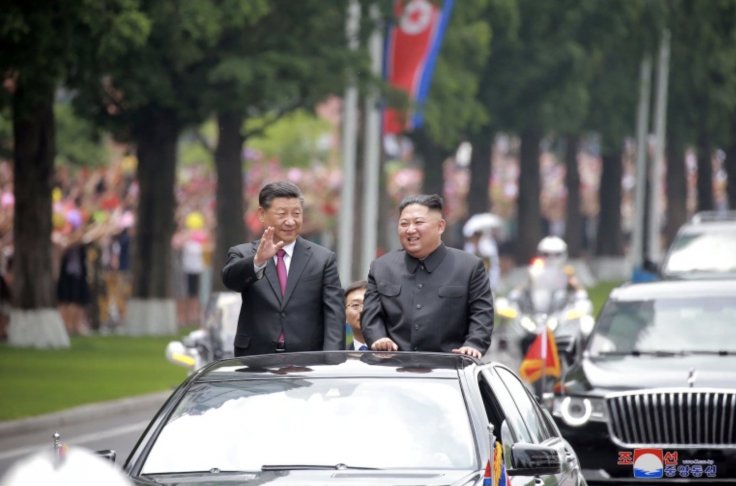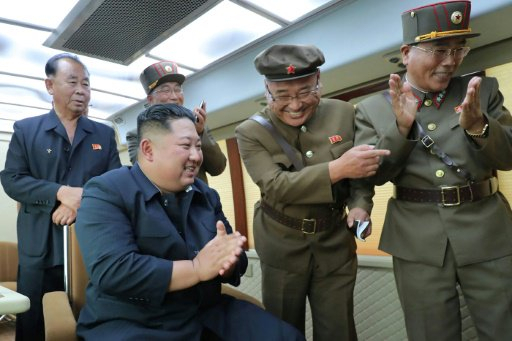The Chinese impassiveness towards North Korea's test firing of tactical weapons has surprised experts who cannot believe that there is no Chinese reply in spite of the win-or-lose situation surrounding the nuclear arms race.
North Korea under the command of their supreme leader test fired a new tactical weapons system a week ago and China's only retaliation was silence. Pyongyang, in the last few months, has conducted several missile tests. However, the test launch last week overlapping with the 110th birth anniversary of the nation's founder Kim ll Sung was an essential one as it focused on revamping the nuclear capability of the country.
These multiple launches have not only alarmed their neighbor in the South but also the Japanese and the Americans.
As per NK News, an American website that provides insights and news in North Korea, for the first time in four years, the North test-fired an intercontinental ballistic missile (ICBM) in March breaking a self-induced embargo by launching their "largest nuclear-capable missile."
Yun Sun, director of the China Program at the Stimson Center in Washington, said that this week Beijing has send a special envoy to Washington after the launches, however the country is hesitant as "it bides its time with the US and South Korea," Al Jazeera reported.

Leif-Eric Easley, associate professor of international studies at Ewha Womans University in Seoul, brought into notice the incidents when China acted as the middleman between Pyongyang, Seoul and US. "In the past, China constructively hosted the Six-party Talks and was willing to join UN Security Council sanctions against North Korea's nuclear and missile programmes. But now Beijing is hardly pressuring Pyongyang on denuclearization or returning to diplomacy," he added.
Taking into consideration the past relation of Beijing and Pyongyang, ever since Beijing stepped in to join forces with the North and fought against the Americans during the Korean war, the two countries have established a close relation. They are each other's only treaty allies as the two are among very few communist countries in the world to exist today. The Chinese also exist as an important economic source of assistance to the North. The outbreak of the coronavirus further strengthened their relation as China assisted in supplying food to Pyongyang after its borders closed.
Analyst deduce this gave the Chinese a "potential influence" as well as "strategic leverage" over the North much to the chagrin of Washington. This soured the already poor relations between US and China after the Trump presidency and intensified the competition of becoming a global superpower.

Experts believe that the reason behind Beijing's silence might have been a mountain of their own current domestic complications. These include the worst COVID-19 outbreak since the virus initially emerged in Wuhan in late 2019. In an effort to continue pursuing the "Covid Zero" policy, 45 cities, including the economic core Shanghai, are under partial or full lockdown.
Preparation for the all-important National Party Congress in October is also in full swing, as the leaders get ready to decide, review and analyze major policies to be set for the next five years.
Isaac Stone Fish, founder and chief executive of the China-focused research firm Strategy Risks, concurs: "Beijing is focusing on Covid, but also there's a lot of political jockeying going on among elite politicians in China right now because there are a lot of very important positions up for grabs."
China's President Xi Jinping is making efforts to get his hands on another unprecedented third term in office after the removal of tenure limits in 2018. Analyst are therefore of the opinion that while the Chinese have chosen silence as their answer for now, if provoked by the North's resuming of nuclear testing suspended since 2017, they will retaliate.








